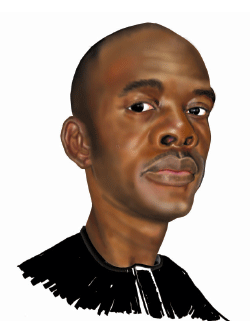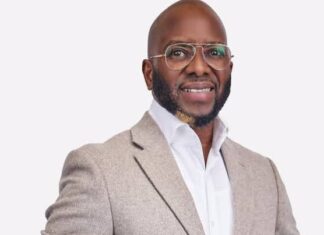By Ikechukwu Amaechi
It was obvious the November 16 off-season governorship elections in Bayelsa and Kogi states were going to be tales of sorrow, tears and blood.
But nobody could have imagined that things would be this bad.
When it comes to elections, Nigerian politicians always jump the shark on truth. They make elections theatres of the absurd, and make every successive poll worse.
The brigandage is mindboggling. The desperation of politicians and their willingness to deploy violence to brutalise the psyche of the electorate is benumbing.
What is more: the ease and equanimity with which politicians rationalise and arrogantly explain away their egregious conduct is surreal, typically Nigerian.
I watched the Governor of Kogi State, Yahaya Bello, claim on national television on Monday, November 18, that his reelection was the handiwork of God and I shook my head in utter disbelief. The hubris was insufferable.
Not a word of sympathy from him for the dozens wounded in the senseless state-sanctioned violence that marred the poll. Not a word of condolence for the families of those who lost their loved ones.
The same day, APC National Chairman, Adams Oshiomhole, echoed Bello in Aso Rock when the All Progressives Congress (APC) leadership presented Bayelsa Governor-elect, David Lyon, to President Muhammadu Buhari.
“The president has always been concerned about peaceful elections and we were proud to inform him that besides very isolated cases of ballot box snatching, the election in Bayelsa can be described as the most peaceful,” Oshiomhole said.
“I believe since 1999, you will agree that this is the only time we can say the election is truly transparent and peaceful,” he added for effect.
And you wonder whether Nigerian politicians are human beings with blood running in their veins. Is Oshiomhole for real? How could anybody claim without any qualms of conscience that the November 16 election in Bayelsa was the most transparent and peaceful since 1999?
What about the Kogi State PDP Woman Leader, Mrs. Salome Abuh, who was burnt alive in her home on Monday by APC thugs.
A bloodcurdling eye-witness account said the thugs arrived at Mrs. Abuh’s home at about 2 p.m. and blocked every exit from the house, knowing full well that the woman was inside the building.
Then, they poured petrol on the building, set it ablaze, stepped back and fired gunshots continuously to scare people away from coming in to rescue their victim. Terrified villagers could only watch the gory spectacle from afar, helplessly.
“The blood-thirsty thugs waited, shooting and watching with relish while Mrs. Abuh cried from inside the inferno until her voice died out,” The Punch newspaper reported.
It will be good to know if deep down, Buhari really believes the outcome of these elections is an exemplar of the electoral integrity he promised Nigerians.
He has congratulated his party men declared winners and advised opposition candidates and their political parties to seek redress in court. But is he saying that the electoral outing in Kogi and Bayelsa on November 16 is the best Nigerians should expect under his watch? Do we take it as his next level electoral agenda?
Nigeria has a way of confounding even its most incurable optimists, a way of grossly disappointing those who believe and preach that this country of ours is not a lost case, who believe that it is still redeemable and should be given a chance.
Clement Nwankwo, the Nigeria Civil Society Situation Room (NCSSR) convener, evoked that unmistakable demeanour this week. Usually urbane, diplomatic and temperate when discussing Nigeria’s electoral challenges, Nwankwo would rather see the country’s electoral mug half-full rather than half-empty.
He would be the first to tell you that Nigeria’s democracy is a work in progress; and no matter how bad an election is, he would look ahead, proffering solutions.
But that was before last Saturday’s fiasco. On Sunday, Nwankwo lost it. Completely.
Perhaps, for the first time since he started this lifelong project of deodorising the country’s putrid-smelling democracy, he said the November 16 elections were a farce and called for outright cancellation of the Kogi poll in particular.
In a statement he issued on behalf of the coalition of 400 civil rights organisations under the aegis of NCSSR, Nwankwo dismissed the Bayelsa and Kogi elections as “a major dent to Nigeria’s democratic process.”
He added: “Situation Room is disappointed with the conduct of the two governorship elections that held in Kogi and Bayelsa States. The elections fall below the standard expected of a free, fair and credible election.
“In Kogi State, the levels of violence perpetrated by the two major political parties seriously undermined the elections, deterred voters and made the exercise a farce.
“Accordingly, Situation Room is calling for the cancellation of the entirety of the Kogi State elections.”
Coming from him, these are strong words, quite atypical. They reminded me of an interview I had with Professor Maurice Iwu, former chairman of the Independent National Electoral Commission (INEC), in May 2014.
Seven years after he left office, Iwu refused to talk to the media. Like one of his predecessors, Prof. Humphrey Nwosu – who superintended the annulled June 12, 1993 election and was quoted as saying that if he opened his mouth, Nigeria would burn – Iwu had a lot to say but didn’t want to stir the hornets’ nest.
I persuaded him to speak. But that interview on May 5, 2014 remains his first and last to date.
“You cannot have a good outcome in elections without internal democracy in the political parties. The parties must be made to be democratic. Let our politicians have the courage to accept whoever wins elections,” Iwu said.
Taking the blame of electoral malfeasance off the shoulders of the umpire and placing it squarely on politicians, Iwu explained: “The other issue is the sanctity of the ballot itself. We have had a situation now where people come together and then there is accreditation, and voting is done.
“If the voting that is done is held sacrosanct, the outcome of the ultimate election will be different. They (politicians) know as much as I know that there is voting after voting, and there is nothing the INEC can do about it.
“They know and Nigerians don’t know that it is security agencies that determine the movement of people and materials during elections and there is nothing the INEC chairman can do about it.”
Asked if 15 years wasn’t time enough for Nigerians to learn the lessons since we are not reinventing the wheel of democracy, the professor of pharmacognosy, said the problem was not with ordinary Nigerians.
“Nigerians are learning the lessons, but the political elite are so bent on holding all of us to ransom. They are so bent on making sure that Nigeria doesn’t work. They are so bent on making sure that the will of the people is never realised. It is a cabal.
“They are into a bubble of their own. They know what they want …. When they are ready, the changes will happen. But they are not ready.”
Elections are ever so contentious in Nigeria because we, the people, are always backing the wrong horse. We have patented the art of lionising politicians, making them demi-gods, and elevating political parties to cults, a fact Iwu agrees with.
“The problem is with the political parties. You cannot give what you don’t have. There is no internal democracy in all the parties.
“If you now have your selection process for candidates not based on popular mandate, it then means that whoever you elect subsequently is unpopular. He comes there with a handicap because he didn’t come through popular will.
“That is why you see people migrating from one party to another because of the excessive powers of the governors. In a true democracy, it should be the other way round.
“The governors should be fighting to remain loyal to the party, to be in the party’s good books, but here, it is the other way round.”
Beyond rigging, the Peoples Democratic Party (PDP) lost Bayelsa for the first time since 1999 primarily because Governor Seriake Dickson became too greedy for power and arrogant.
His greed and arrogance became the hydraulic that oiled his contempt for internal democracy, which in turn alienated the party faithful and set the tone for the eclipse of the PDP in the state and his own political requiem.
But that will be an issue for another day.
Iwu insisted that “no amount of electoral reform can bring change until the political elite decide to reform themselves. Nigerian politicians are rotten. They are just rotten. I am not saying some of them are rotten. I am saying Nigerian politicians are rotten.”
Five years ago, I thought that verdict was too harsh. Today, and knowing what I know it takes to win elections in Nigeria and secure the victory in the courts, to say that Nigerian politicians are rotten is even an understatement. They are worse.
We lie to ourselves when we claim that this so-called democracy is working. It is not. And it will never work this way.













